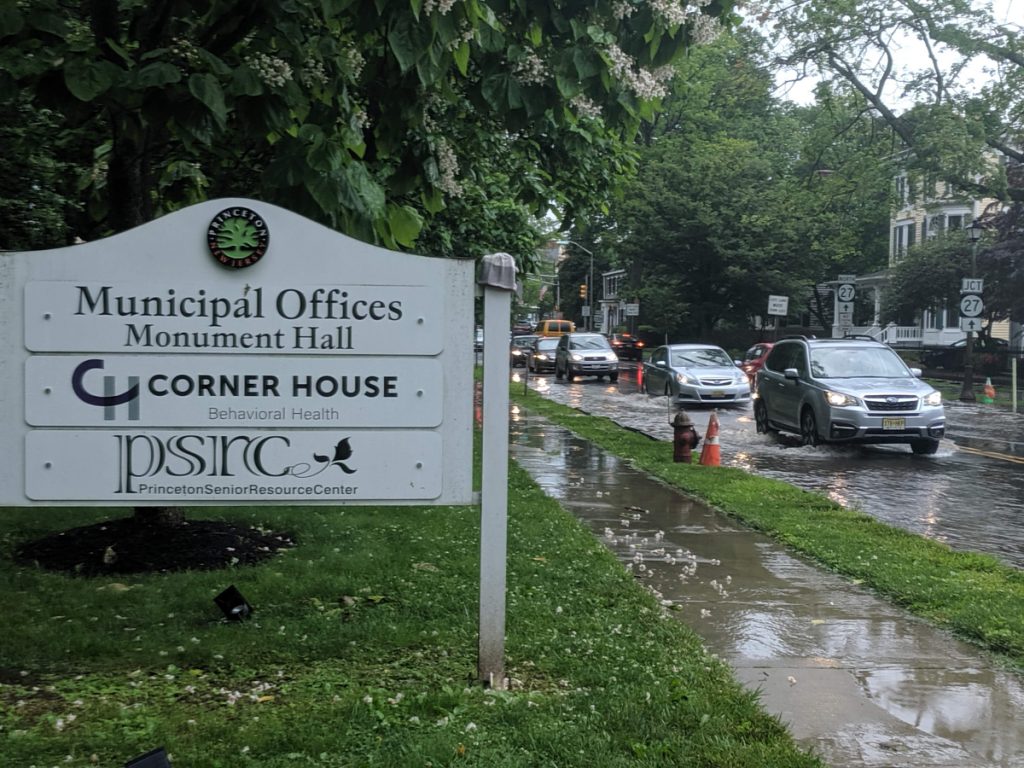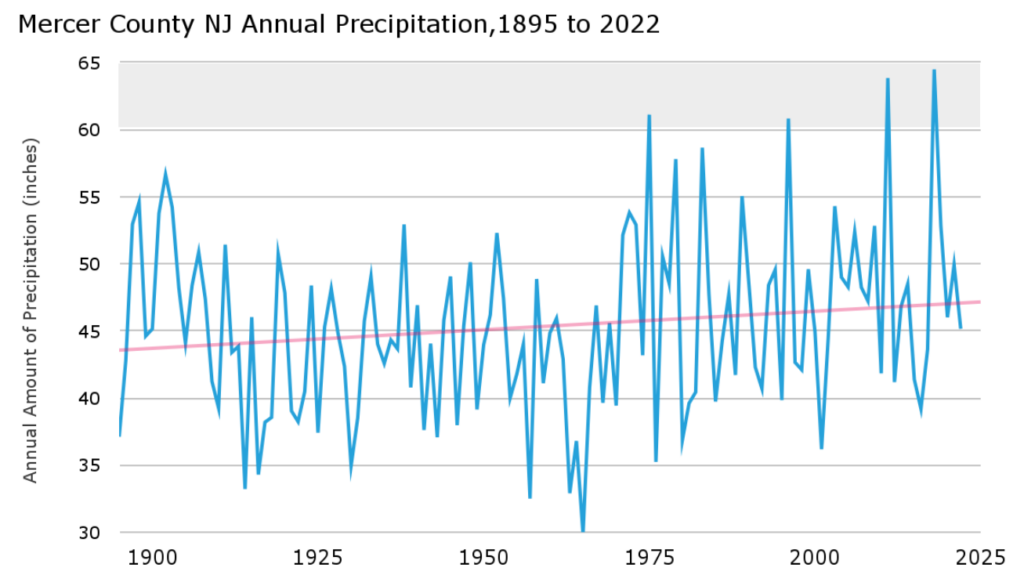Floods are becoming more frequent in New Jersey, causing economic loss and human hardship.
Know your risk and be prepared for the next one.
Stay safe during a flood.
- Stay informed. Follow reports issued by the National Weather Service on local radio, NOAA radio, or TV. A flood watch means flooding is possible in your area. A flood warning means a flood will occur very soon or is already occurring.
- Avoid floodwater. Don’t walk or swim through floodwater. It may be contaminated with sewage or chemical waste. Wash your hands with soap and disinfected water. Keep pets and children away as well.
- Drive cautiously. Turn your car around if water on the road looks to be 6 inches or deeper — or if you can’t tell how deep it is. Be particularly careful at night when it is difficult to recognize flood dangers.
- Stalled vehicle. If your vehicle stalls due to water, abandon it immediately and head to higher ground. Rapidly rising water may sweep away the vehicle and its occupants.
- Protect yourself from wires. Stay away from downed power lines and electrical wires and don’t drive over anything that could be a concern.
- Avoid flood zones. Be aware of Princeton’s FEMA flood zones and others on your route. Review your flood risk in the FEMA Flood Map Service Center.
Stay safe indoors.
- Secure valuables. Move important documents and other valuables, including medication that needs to stay dry, to higher ground.
- Follow recommendations. Local authorities will provide notifications if public concerns arise, such as tap water becoming unsafe or the need to shut off electricity, gas or water lines.

Did you know?
- Stay dry and safe. It only takes six inches of fast-flowing water to knock you over. Two feet of rushing water can carry away most vehicles, including SUVs and pickup trucks.
- Rain, rain, go away. In 2018, Mercer County experienced the highest annual precipitation ever recorded; a developing trend.
- Be smart, turn around. According to the National Weather Service, more than half of flood-related drownings occur when someone drives into hazardous water.

Sad, but true. Record-breaking precipitation has become the new normal for our region.
Source: Mercer County, NJ precipitation data 1895-2021. Office of the NJ State Climatologist (ONJSC), https://climate.rutgers.edu/stateclim/




